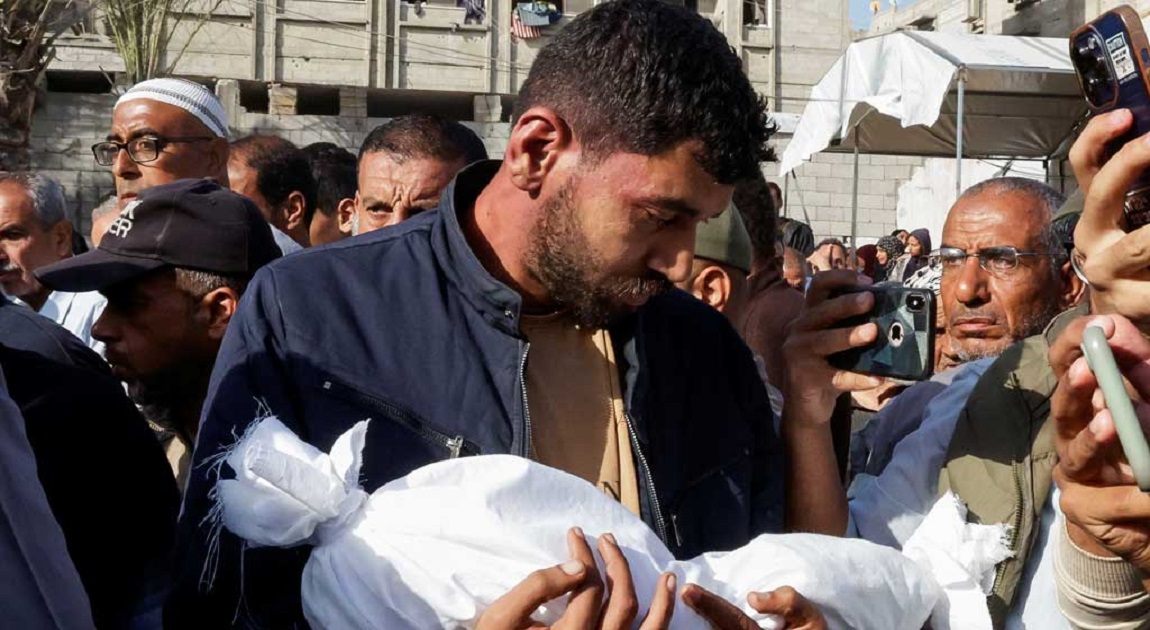Israel`s security cabinet has approved a plan to intensify its ground offensive in Gaza, aiming to seize full control of the territory and maintain a military presence, Reuters reports quoting an Israeli official on Monday.
According to Israel’s public broadcaster Kan, the newly endorsed strategy will be implemented gradually over several months, beginning with operations in specific regions of Gaza.
This extended timeline could leave space for potential ceasefire negotiations and hostage release deals ahead of U.S. President Donald Trump’s expected visit to the region next week.
“There remains a window of opportunity until President Trump’s Middle East trip concludes, if Hamas recognizes the seriousness of our intentions,” cabinet minister Zeev Elkin told Kan.
Following the collapse of a U.S.-mediated truce in March, Israel resumed its ground operations in Gaza and has since enforced a complete blockade on humanitarian aid. Israeli forces currently control about a third of the enclave.
Under the new plan, Israeli troops will no longer withdraw from areas after raids but instead maintain a hold on captured territories. Elkin noted the objective is to either force Hamas to surrender, disarm, or abandon Gaza entirely — a demand the group has firmly rejected.
Meanwhile, international pressure on Israel is growing, with critics demanding a clear post-war vision for Gaza. The ongoing offensive has displaced the majority of the enclave`s 2.3 million residents and severely limited access to humanitarian supplies due to the ongoing blockade.
Israel has said it will attempt to prevent aid from falling into Hamas’s hands by directing it through military-run distribution hubs. However, the United Nations has rejected the plan, and the Norwegian Refugee Council’s Secretary-General Jan Egeland accused Israel of trying to “militarize” humanitarian aid. He stated that NGOs will not comply with the new distribution model.
In a move to bolster the expanded offensive, Israel’s military has issued tens of thousands of reserve call-up orders, according to Chief of Staff Lt. Gen. Eyal Zamir. He reportedly warned ministers that allowing aid into Gaza must become a priority.
The war began on October 7, 2023, after a Hamas attack on Israel killed 1,200 people and resulted in 251 hostages being taken into Gaza, marking the deadliest day in Israel’s history. Since then, Israeli military actions have killed more than 52,000 Palestinians, the majority civilians, according to Gaza’s health authorities.
Of the 59 hostages still believed to be in Gaza, up to 24 may still be alive. Their families fear ongoing military operations could put their lives at greater risk, while critics argue that Israel is being dragged into a prolonged guerrilla conflict with no clear exit strategy.
Public support within Israel for continuing the war has declined, with increasing calls for a ceasefire and the prioritization of hostage negotiations. Hamas, for its part, insists it will only agree to a hostage release as part of a broader deal that includes a complete Israeli withdrawal and a permanent end to the war.




-20260219110716.webp)
-20260219054530.webp)


-20260218060047.jpeg)
-20260216055149.webp)























